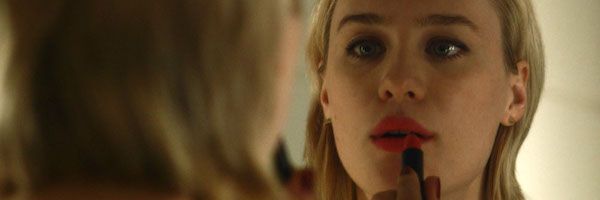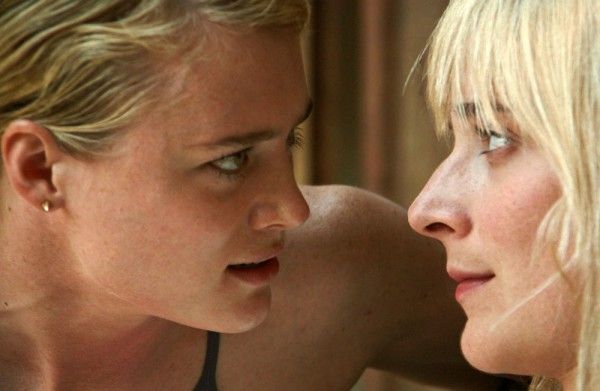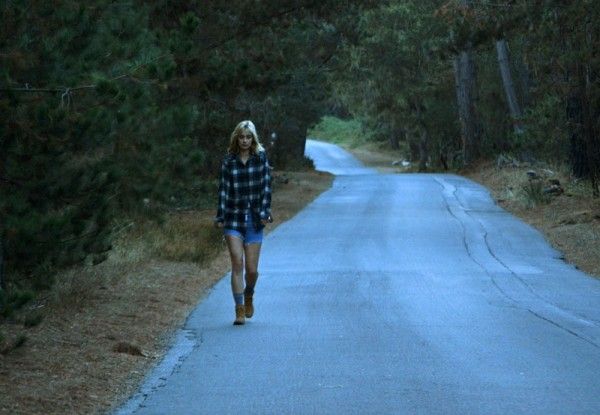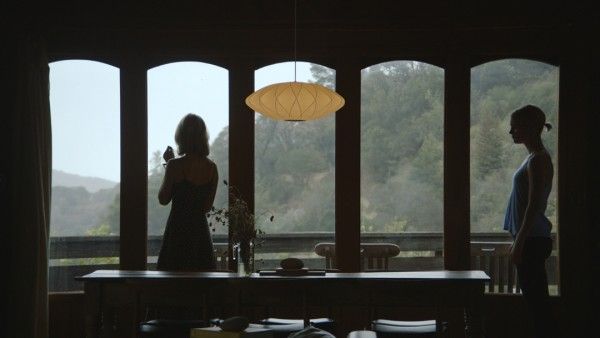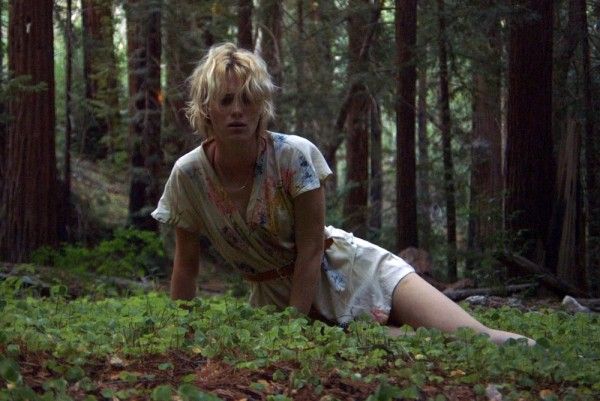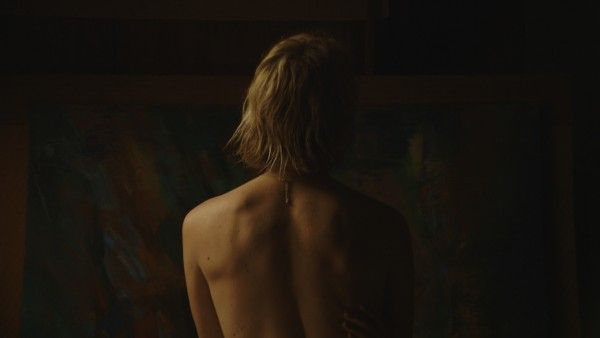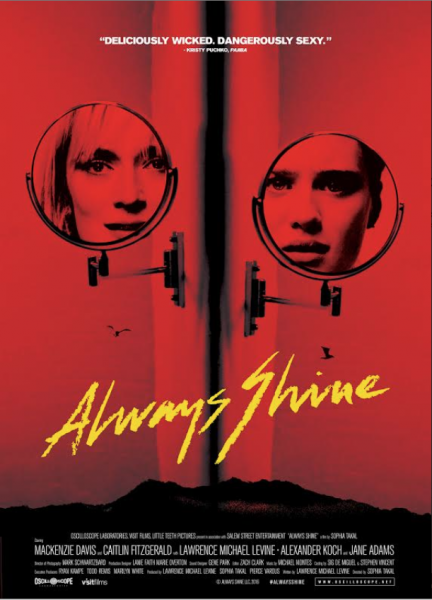From Sophia Takal, the unsettling thriller Always Shine follows two friends, Anna (Mackenzie Davis) and Beth (Caitlin FitzGerald), who are both actresses trying to follow their dreams and make a name for themselves. When they leave Los Angeles for Big Sur to embark on a weekend getaway to reconnect, suppressed jealousies and resentments quickly rise to the surface, causing some very ugly truths to come out.
During this exclusive phone interview with Collider, actress Mackenzie Davis talked about how personal the script felt, living and working with the cast and crew, and how crucial it was to have a rehearsal period with her co-star, Caitlin FitzGerald. She also talked about her work in the very well-received Black Mirror episode “San Junipero,” the upcoming final season of her AMC series Halt and Catch Fire, what attracted her to Blade Runner 2049, and wanting to work with the Young Adult trio of Jason Reitman, Diablo Cody and Charlize Theron on Tully.
Collider: It sounds like you didn’t have to rely on the typical audition process for this, and that it was more about having a conversation with the director. When you spoke to Sophia Takal, did you immediately find yourselves on the same page?
MACKENZIE DAVIS: Yeah, and it was like that when I read the script. You know when you read a book and it feels almost embarrassing because it feels so personal and you see yourself reflected? It felt like somebody telling my secrets, things that frustrated me, things that I feel inadequate about, and things that I want to rage about. Somehow, Sophia had written them all down, and it still felt personal to me, even though it was personal to her, which I think is the mark of really great writing. I felt that way even before I talked to her, but then we talked and it felt like kismet. It was very immediate. I’d never had a Skype with a director like that, who was thinking about the same things that I was thinking about, at that particular time. Sometimes you’ll read a script, and then you’ll have a meeting with somebody and be like, “Oh, the way I understand this is so different from the way you understand this,” which can be great because different perspective can illuminate all sorts of things about a certain text. But for the most part, you need to be on the same page as your director because, if you think you’re telling one story and they think they’re telling another, they’re going to be the ones telling the story. It’s not going to end up the way you think it is, in your mind, which is a good thing to be aware of, that I learned late in life. I felt extremely simpatico with Sophia. I understood the script, the way she wanted to tell it, and more than any other director I’ve ever talked to, she knew what the finished product was going to be, from the beginning. She wasn’t leaving it up to chance and seeing what came out of the experience of filming. She knew the title that she wanted. She knew the music that she wanted. Michael Montes did the score. She had all of the references, which were exactly how the movie sounds now. It’s so refreshing to talk to somebody at any age, but especially a young director, who just has their shit together. She knew the story she wanted to tell, and she had reasons for everything. It’s not because she wanted to direct. It’s because she wanted to tell this story, in particular.
This film is mostly just you and Caitlin FitzGerald, acting together, and you must have had a small crew. Was it intensely emotional and intimate, in that way?
DAVIS: Yeah, it was. We all lived in a house together, in Big Sur, for five weeks. It was me and Sophia and Caitlin, and just a few other people – the D.P., the A.C., the sound guy, her sister and her husband, who wrote the movie. It was just us, and it was heaven. It was very intense, but the intensity was contained in a way that I thought it was so healthy. We all woke up together, every day, and all did exercises and meditations before we started shooting. Everybody in the house had to do them, which made us feel like we were all creating this thing together. It wasn’t like the actors had to go do something important. And then, when the day ended, we all had dinner together and talked about the high part of the day and the low part of the day, going around the table. It book-ended the day in a really healthy way. Anything that happened between those two events, you could go as far as you wanted because you could release it in a healthy way, at the end of the day, and not just go to your hotel room and drink by yourself. It made it succinct.
Did that allow you to leave all of that intensity behind, at the end of the day?
DAVIS: There are certain things that haunt you, where you’re like, “Oh, my god, I just fucked that up so badly!” But for the most part, it just contained everything. There wasn’t as much room for neuroses because you ended the day definitively, every day, and you started the day definitively, every day. You could be whatever thing you wanted to be during the shooting hours because there was an end to that, which was so healthy.
Was it nice to have a rehearsal period for this film? Did that feel like something that was really crucial, in this case?
DAVIS: Yeah Especially because the movie is about this really violent disillusion of a friendship, we really wanted to play with the parts of their relationship that existed before this disruption. It’s pretty unrelenting ruin, over the course of the movie, for their relationship, so it was very helpful to play and experiment with certain places and moments in their life, like getting ready to go to a party when they were in college together, or meeting at a café when one of their boyfriends had broken their heart. We built these little concrete memories that were intended to and hopefully gave a little bit more depth to their relationship rather than just the end of everything.
These two women are really pitted against each other, professionally, which clearly has created resentment and jealousy, in Anna’s feelings toward Beth. Have you seen examples of that yourself, or had to avoid that, when it comes to your own career?
DAVIS: I think that’s a culture that our society has created for all women. There’s a myth of a scarcity of opportunity. Whether that’s professionally, socially or with a mate, there’s a sense that you have to get something that somebody else has, and if they have it, there’s not enough to go around. That’s definitely in acting, for men and women. I do think the movie is about not just actresses, but a culture that thrives when women are in competition with one another, as if there’s only one type of woman to be, and if you’re not that woman, you won’t be successful in your life’s pursuit. If you can’t do that, and you keep trying and failing, at a certain point, you’ll hit so many corners of the box that you’ve been placed in that you’ll just fucking explode.
Do you think that these two women were ever genuinely friends with each other?
DAVIS: Yeah, I do. I really did believe that when I made it. Watching it, it feels a little bit different, but I do think that they were friends. I think certain friendships rest too much on the power dynamics of the origin story. When their friendship was affected, it was not Beth, the successful actress, and Anna, the raving lunatic. It was Anna, the charismatic, successful one with all of the potential, and Beth, the beautiful but wilting flower and mousy girl. And then, something happened and she came into her own, and things hardened in Anna and felt further and further aware from her. The dynamic shifted so much, it couldn’t really survive anymore.
Your episode of Black Mirror, “San Junipero,” was so great and such a stand-out of the season!
DAVIS: Thank you!
When you made that, did it feel like you were just doing an episode of a show, or did you have any sort of inkling of the impact that story would have on viewers?
DAVIS: I didn’t. It definitely didn’t feel like just a show to me because I was such a big fan of it. Being a fan, I was like, “This is a very different episode for Black Mirror. That’s so exciting!” And then, the actual making of the thing was just so pleasurable and lovely. The people that we made it with were so smart and kind and egoless, which is my favorite combination. I’m not a part of the community that it was so well received by, and I’ve learned so much about both the frustrations of the LGBTQ community, since it came out, and why it mattered, but I didn’t have that insight before. It’s been really cool and educational to have this whole other contextual reading of a story that really felt, to me, like just a love story. Nobody made a big deal about it being women on set. It was just a lovely story that moved us very deeply. But it’s become such a cool part of this job that half of the experience was making the thing, and then the other half is the conversation you get to have when it comes out and it becomes the property of the world and this entirely different thing than you thought it was. It’s really fucking rad!
What appealed to you about doing the Blade Runner sequel, Blade Runner 2049? Do you think the same things that excited you about it will be the same thing that excite audiences, when they get to see it?
DAVIS: Yeah, I think so. I think there’s an equal mix of resistance and excitement about it, which I felt, as well. I both desperately wanted to be in it and was just very, very skeptical. And then, I read the script and the script was so wonderful. And I met (director) Denis [Villeneuve], who I think is one of our greatest living filmmakers, and my fears were laid to rest. I’m such a huge fan of the original and I really don’t believe we need to update everything and bastardize a legacy, but this feels like a really beautiful companion to it, visually and with the storytelling. I feel so lucky to be a part of it.
Would you say that the film will bring something different to the sci-fi genre, like the original did?
DAVIS: I don’t know. The sci-fi genre is so multi-tentacled. There are so very many iterations of science fiction, and this is very much in line and honors the original while being its own chapter in a story. I think the original changed science fiction forever. There’s a reason why we still watch it and it doesn’t feel dated and the aesthetics don’t feel dated. It was so ahead of its time that it became timeless, in a weird way. Its version of the future still feels terrifying and plausible, in many hundred years. So, I don’t know. This one just feel a part of the world that Ridley [Scott] created. I think that was the first of its kind, when it came out.
Halt and Catch Fire has wrapped its third season, and we know that the fourth season will be its final season. Have the showrunners had a conversation with you yet about where the last season might go or where your character might end up?
DAVIS: No, I don’t know. Before every season, we go into the writers room and have a conversation about it, and we hear where they’re taking things and talk about things we’re interested in exploring. I haven’t done that yet, but I would imagine that’s going to go down, in the next couple of weeks. They’re definitely roaring on that, right now, ‘cause we start in March. I’m just excited. There’s something so lovely about knowing it’s the last season, and then getting to just tell a complete story, and us entering into it with the knowledge that this is the last time we get to do it. I feel so excited about it, and so lucky to have been able to do it for this long.
You also have Tully, which is directed by Jason Reitman and from a script by Diablo Cody.
DAVIS: And Charlize Theron, for the whole combo. I loved Young Adult, so that whole combo excites me greatly.
Is that one of those things you would have done, without even reading the script?
DAVIS: I guess so. It’s hard because scripts matter. I feel like I used to think that and be like, “Oh, if these great people are doing it, whatever it is, I want to do it!” But it’s important to really care about it and think that it’s good, and think that you have something to contribute to it. It can’t just be an admiration for the creators. So, I was happy that both were true.
Always Shine is now in theaters and on VOD.

